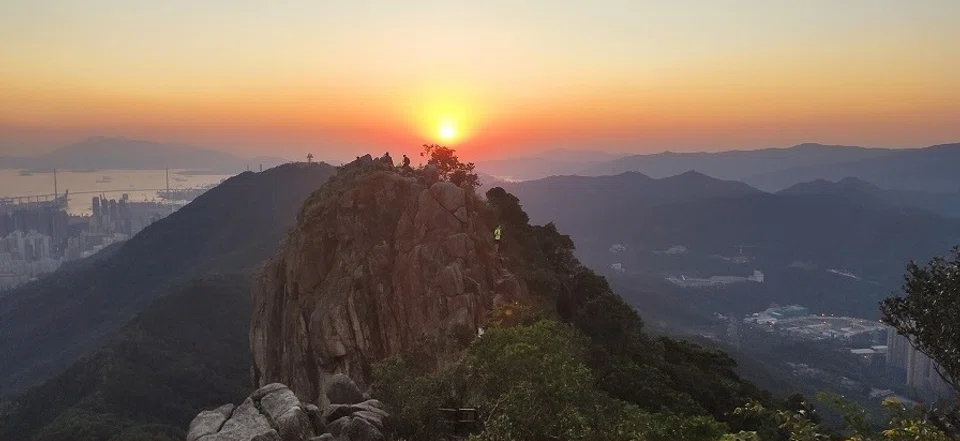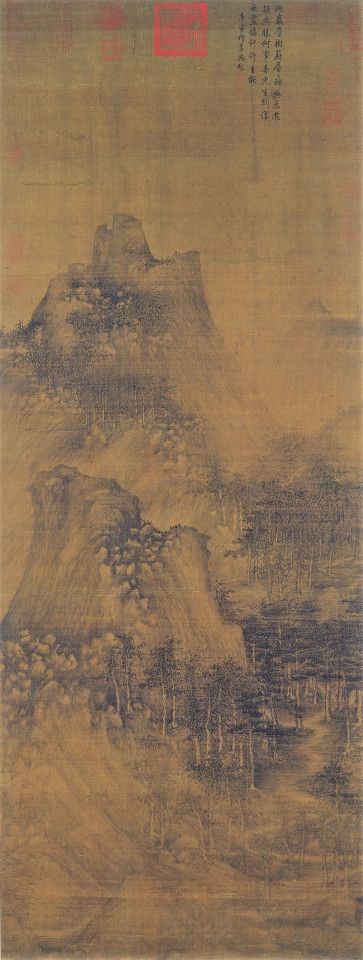Cultural historian: A woman swinging on a branch and an abused tree
Cultural historian Cheng Pei-kai remembers the days when he lived at the foot of a hill in Hong Kong's Kowloon Tong district. He enjoyed the serene calm and respected nature's bounty, but he can't say the same for some hill visitors who would "abuse" the trees and take them for granted. Even giving trees will one day be worn out.

From my former university housing estate in Hong Kong's Kowloon Tong district, I had a good view of a small, verdant hill. Ever so often, it was shrouded in fog. In the morning, birds would sing in undulating tones. Because the hill was unmarked on maps, residents called it "Nam Shan" (南山, lit. south mountain). I faced the hill as I read my books, watching as light streamed in from the window and shadows danced on the page. In those moments, I was reminded of Tao Yuanming's poem, "Drinking Wine" (《饮酒诗》)*:
I built a cottage right in the realm of men,
yet there was no noise from wagon and horse.
I ask you, how can that be so?
- when mind is far, its place becomes remote.
I picked a chrysanthemum by the eastern hedge,
off in the distance gazed on south mountain.
Mountain vapours glow lovely in twilight sun,
where birds in flight join in return.
There is some true significance here:
I want to expound it but have lost the words.
I always felt lucky that I had a quiet, hidden haven to retreat to in a noisy and chaotic place like Hong Kong. I just needed to look up and there I would find nature's beautiful face looking back at me as birds sang outside my window.
In my free time, I would think of the glory of historical figures from the Wei-Jin dynasties, or I would imagine Tao Yuanming farming in the morning and returning with his hoe under the moonlit sky. Although I was swamped with work, I was happy just being able to think these thoughts and to let my poetic subconscious mind take flight.

Every morning, local residents would climb up the winding stone steps in groups of twos or threes, gathering in clearings on the hill. Some would practise tai chi and do some light exercises, while others would contort their bodies into bird postures ancient Chinese physician Hua Tuo would never have understood, all to improve blood circulation and relax their muscles.
How much more abuse can nature take?
A middle-aged woman came up with her own exercise routine: she chose an elegant acacia tree at the edge of the open space and swung from one of its branches like a gymnast would a horizontal bar.
She hung on to the malleable branch, one moment bouncing off the ground, the next swinging in the air with the frenzied enthusiasm of Marquis de Sade, wreaking havoc on the young tree which was less than ten years old.
Perhaps because the abuser did not stop her assault, the young and thin branch became bald and no longer sprouted leaves. Upon closer inspection, it had clearly endured constant "sexual abuse" - the tree was nothing but a bag of skin and bones on the verge of death. With no rest and little time to recover, coupled with a lack of rain and dew, the young tree suffered this abuse every morning.
Each time the tree creaked and groaned from the woman's swinging routine, I would have the urge to intervene and stop her "sexual abuse". But worried that I might be seen as a lunatic, I hurried away with disgust.
I sometimes wondered: have we lived in the city for so long that our souls have become rough and cruel? Have we endured an oppressive environment and lived in exploitation and abuse all our lives such that we no longer cherish nature and refuse to allow a young adolescent tree to live its own carefree life?

It's hard to find a little hill amid the concrete jungle that is Kowloon. Since a dense forest has found its home here and shown us the lush and youthful face of nature, why must we senselessly destroy its greenery? Have we lived in the shadows of the city for too long and become psychopaths unable to tolerate the high spirits of the hills and forests? Have we lost control like sexual perverts who have the urge to disfigure a beautiful woman every time they see one?
I exercised on the hill in the morning during my free time as well. I didn't box or kick or join the exercise groups on the hill. I went there to learn from nature and to gaily walk the hills, moving freely among earth's wonders and taking in the elixir of life.
There's a rock on top of the hill which makes for a scenic lookout point. Gaze to the south and you'd see the skyscrapers of Tsim Sha Tsui and the even taller skyscrapers across the harbour. Clumped together, they look like guns and barrels propped up in an ammunition depot - an intimidating sight indeed.
Look to the north and you'll spy Lion Rock (狮子山), a protruding rock cliff nestled in lush green foliage, magnificent in its allure and reminiscent of Five Dynasties Chinese painter Ju Ran's Cengyan Congshu Tu (《层岩丛树图》). Although enveloped by some fog, the rock cliff is still fully visible. In the distance, the flourishing trees and diverse rocks look fascinating.

I told myself, one day when the wind and sun are clear, I would go for a walk in the hills. I would gently caress every leaf along the winding path and meet and learn from nature face to face. Otherwise, it would be such a pity that I had lived near Lion Rock but never visited it!
Living at the foot of Nam Shan, I climbed it and saw the even taller Lion Rock further yonder. I felt the urge to climb it too. Ah, nature must have called out: Come to me and fulfil your heart's desire for good physical health!
*Translated by Stephen Owen at chinainstitute.org.





![[Photos] Fact versus fiction: The portrayal of WWII anti-Japanese martyrs in Taiwan](https://cassette.sphdigital.com.sg/image/thinkchina/3494f8bd481870f7c65b881fd21a3fd733f573f23232376e39c532a2c7593cbc)